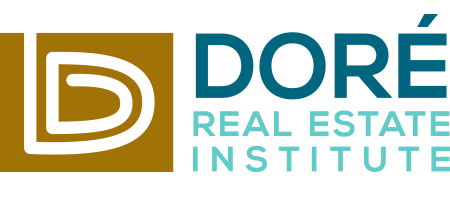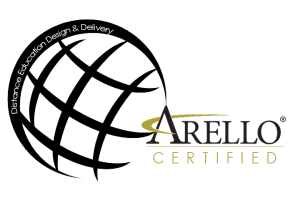How Much Does a First-Year Real Estate Agent Make?
If you’re interested in becoming a real estate agent because you’ve heard it can be a lucrative career path, you’ve heard right. According to Indeed, the average salary is just over $94,586 for first-year full-time agents — but this rate can vary greatly. As a recent 2020-2021 report reveals, many agents start out by earning a significantly lower salary but actually double their income once that first year is under their belt. In other words, hard work and years of experience correlate with significant increases in income for active real estate agents.
The process of earning your salary as a first-year real estate agent might be different from what you’ve experienced in other industries. That’s because being a real estate agent is typically not a salaried job, but one in which you make your own pay. While some Brokers do offer a paid stipend as part of their negotiated contracts, most only pay out commissions that are a percentage of the sale price of the property. Average commissions are typically split four ways: between the listing agent, their Broker, the buying agent, and the buying agent’s Broker.
Average First-Year Real Estate Agent Income by State
How to Quickly Grow Your Income as a New Agent
Experience plays a large role in growing your real estate income, and the key to first-year success is to properly manage four financial aspects of your business: affordable marketing opportunities, effective networking, smart earning strategies, and industry education. Take a look at our top 10 ways to leverage these four aspects to get more listings, bigger commissions, and a super-sized growth rate during your first year as an agent.
- Get Social: Tell everyone you know that you’re an agent now, including neighborhood acquaintances, associates where you do business, family, friends, and all your social media contacts. Play up your educational achievements — and your Broker’s success rate, especially for your first few transactions.
- Upscale Your Market: Since the average commission is 5-6%, you can really jumpstart your earnings by initially focusing on higher-priced real estate markets. For instance, the sale of a $200,000 house at 5% commission (divided by four) is $2,500 – but it’s nearly $4,375 if you sell a $350,000 property.
- Focus on Customer Service: Don’t just help people buy and sell their properties; get to know their cares, concerns, and dreams so you can match them with the best offers available. If you enact this tip properly, it can pay off in spades. A recent Nielson survey revealed that 84% of people trust their family and friends for product recommendations, making “word of mouth” marketing one of your best free tools during your first year as an agent.
- Keep Learning: The real estate industry is constantly evolving, and there are numerous ways to learn as you embark on your first year’s journey. For instance, industry designations can give you a leg up over the competition. Similarly, certifications such as Certified Residential Specialist (which can help you earn up to three times more income) are highly beneficial. You can also shadow a mentor at your brokerage firm to gain invaluable, experience-based industry insights.
- Get Creative: Offer something unique to stand out from other real estate professionals, such as customized video marketing for each client with their favorite music added in or a blog with community topics to show your knowledge of the area. You can even call any businesses or event coordinators featured in your articles to find out if they’re willing to comment on or share your posts – and leave your real estate business cards out at their counter in exchange for the free publicity.
- Hit all the Area Events: Farmers markets, festivals, home and garden shows, and crafts fairs are a fun way to find out more about your local area and connect with people who may need an agent. Consider setting up a booth at one of these home events to highlight your creative marketing expertise.
- Start with a Broker: Your Managing Broker should provide support as you enter the real estate industry by introducing you to their network, enabling your access to systems like the MLS, and maybe even setting you up with office space, marketing tools, and learning opportunities to help you grow your income – and theirs!
- Join the National Association of REALTORS® (NAR): NAR membership unlocks invaluable benefits like marketing tools and industry discounts, plus a network of 1.4 million members to help boost your first-year sales. In terms of earnings, one in four designated REALTORS® earns over $100,000 a year, and about a third choose to expand their income options by becoming licensed Brokers or Broker Associates.
- Set a Series of Goals: Because you make your own schedule, it’s important to keep track of what you want to achieve and within what timeline. Maybe you want to collect 10 leads within your first week, which means you’ll also need to set a goal of where you’ll canvas and determine in which online forums you’ll share your information. Though the onus is on you to make your real estate career goals happen, consider sharing your plans with your fellow agents. Giving periodic progress reports to your peers has been shown to further increase your chances for success.
- Make Real Estate Your Plan B: Your first year can be lean, and one of the best ways to pay your bills while also optimizing your real estate sales is to take an hourly position doing just about anything in real estate, including administrative or marketing duties. Being fully immersed in the industry is one of the quickest ways to pick up on everything from the latest trends to expert negotiation tips.
Real Estate Niches That Can Boost Your First-Year Salary
Not only can you use the tips above to boost your salary, but there are also multiple career pathsto choose from once you get your real estate license, giving you even more opportunities to earn big. With so many options available after you complete your Pre-Licensing education, you can find the perfect niche that fits your interests. Some people are drawn to higher risk paths like flipping houses as an active real estate investor, while others pursue becoming a commercial real estate agent, property developer, or Broker.
Commercial real estate (CRE) agents, for instance, earn an average salary of $85,000. These agents assist businesses and investors with buying, selling, marketing, and leasing commercial office, manufacturing, and warehouse space, as well as land for development. Some of their key responsibilities include helping pin down industry trends, conducting space needs and investment analysis, and managing properties and assets to get their clients the best ROI.
If you’re looking for something that touches multiple aspects of the industry, consider becoming a real estate developer. Real estate developers have the flexibility to work in either commercial or residential real estate and focus on finding investors, locating land for new projects, and project renovation or new design builds. Many people who’d like to try their hand at development focus on certifications related to real estate finance and construction management, while others focus on a higher education degree in Real Estate Development. According to ZipRecruiter, the national average salary for a real estate developer is $88,388.
But what if you want to become more independent and keep more of the commission split? Some savvy new real estate agents see the benefits that their real estate Brokers enjoy, particularly the commission split on every agent sale, and decide to follow in their footsteps. Most agents start as Associate Brokers before becoming Managing Brokers, which means taking on additional tasks such as hiring and training new agents, writing and reviewing sales contracts, marketing the real estate brokerage firm, and providing their agents with leads. Coursework to become a Brokervaries based on where you reside, and ZipRecruiter states that the national average income earned by Brokers is $100,514.
Whatever career path you choose, increasing your income the first year is a challenge almost all real estate professionals face. But with our tips, hard work, and perseverance, you’ll be able to make your hard work pay off by taking strategic advantage of real estate’s limitless potential.





